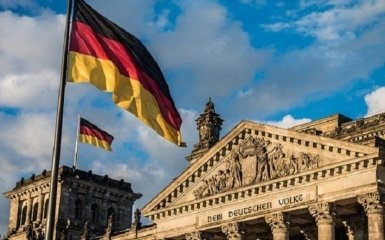German opposition to the proposed reform of the EU military support fund may delay the supply of weapons to Ukraine.
How German countermeasures will affect the weapon supply to Ukraine by EPF
The European Peace Facility (EPF) needs additional funding so that EU countries can receive partial reimbursement of the costs of supplying weapons.
However, the proposed €5 billion in revenue has been delayed as the countries wrangle over how to reform the EPF so that it better meets Ukraine's needs and helps Europe's arms industry meet them.
First pay, then get reimbursed, said one EU official who participated in the negotiations. But Germany and other countries favouring moving away from the reimbursement model say they shouldn't.
Germany demands that the cost of the weapons it supplies to Kyiv on a bilateral basis be counted against its share in the fund. Smaller countries say it would dramatically reduce the size of the fund.
They (Germans - ed.) do not want to accept or refuse money without being sure that (terms - ed.) correspond to what is acceptable to them, said a high-ranking EU official who participated in talks with leaders last week.
According to FT sources, at an EU summit on February 1, German Chancellor Olaf Scholz insisted that a deal on the proposed EPF reform must include proposals made by member states. He said Germany's decision will "consider the national contributions provided to Ukraine."
According to the document reviewed by the publication, the EFM reform aims to achieve a "more structured, effective and pragmatic" way of financing arms for Ukraine.
Large contributors to the fund claim that smaller states, such as the Baltic states, received large reimbursements from the EPF for sending outdated Soviet-era weapons to Ukraine and used the money to modernize their own weapons.
Countries with large defense industries, such as Germany and France, are pushing for rapid change and, an FT source said, "will benefit the most, others understand this very well".
The proposal states that "reimbursement of bilateral supplies will be phased out after a transition period." According to one government official, most believe the current model will be in place until at least the end of 2024, with co-production funding to be increased next year.
Officials in the talks say they aim to reach a compromise by the end of February.
What is known about the European Peace Facility
The European Peace Facility (EPF) is a €12 billion fund created outside of the EU's expected budget and based on contributions from member states based on the size of their economies.
It was exhausted after reimbursing €5.6 billion to EU capitals for weapons they sent to Ukraine in the nearly two years since Russia's full-scale invasion.
In December 2023, The Telegraph reported that Germany plans to cut the amount it allocates in the EPF of €20 billion for armaments for Ukraine.




